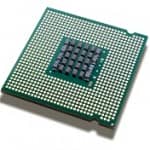Like many of the tech behemoth of yore, Intel is also trying its best not to be left behind. Though, the task is getting more and more difficult. In order to remain relevant in present dynamic times, Intel has now come up with a laptop which combines tablet feature. Jeez, who would have thought about this? Just a couple of hours back, we heard about phone/tablet combo from Asus, and now we have laptop/tablet hybrid.
difficult. In order to remain relevant in present dynamic times, Intel has now come up with a laptop which combines tablet feature. Jeez, who would have thought about this? Just a couple of hours back, we heard about phone/tablet combo from Asus, and now we have laptop/tablet hybrid.
Intel has decided to make it a new category altogether and call it "ultrabook". Asus is expected to show-off one of these at Computex. Now, the question is how an ultrabook is going to be any different from a notebook or a netbook. First off, these hybrids are going to thinner and lighter than conventional notebooks but still would pack the punch, unlike tablets. However, its tablet like features would allow it to be always-on and always-connected. In fact, that's how the new hybrid would be different from the convertibles (think Dell) we've seen so far.
Intel is still a processor powerhouse and commands 80 percent of the market share, but it is fast losing its grip to the upcoming companies like ARM Holdings. Lately, there had been whispers that Apple might be thinking about expanding the use of ARM chips. Apple is already using these chips for its iPhone and iPads. It may start using the chip for MacBook Air as well. ARM chips have the advantage of being energy efficient and therefore are well suited for tablets.
Intel is now looking to miniaturize its chips and is going to put them on diet. Its target is to reduce three dress sizes in three years. Petite design would help in making chips more efficient. However, Intel refused to comment on the rumors that the company's Oak Trail chip will be used by Acer for launching a new tablet.
Intel opined that such lightweight laptop/tablets should hit the market by the end of this year. Also expect them to priced south of $1,000, so now you have a reason to postpone buying a new MacBook Air.
